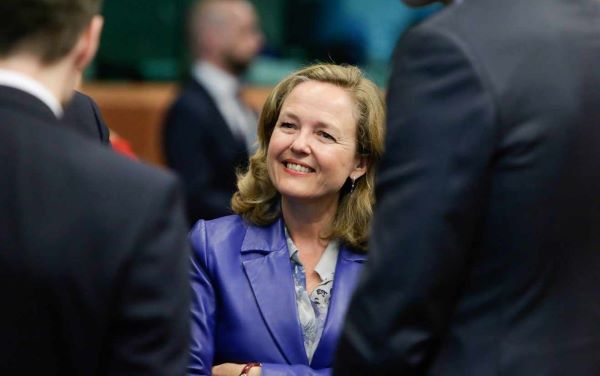Economic News, World
European Union Reaches Agreement to Limit Government Debt
In a pivotal development, European Union governments have come to a consensus on innovative regulations to rein in budgetary deficits and debt. This pact concludes an era of unchecked spending amidst challenges from the Covid-19 pandemic and the Ukraine conflict.
Navigating Economic Shifts: European Union Distinct Path
The accord, finalized on Wednesday, unfolds against a backdrop of mounting borrowing costs for affluent nations. Elevated interest rates and augmented expenditure demands, spanning defense, the green transition, and an aging demographic, account for this situation. In contrast to the economic trajectory of the larger U.S. economy, analysts anticipate that the United States will sustain substantial budget deficits for an extended period, coupled with robust economic expansion.
Leniency in Regulations: A Nuanced Approach
The newly devised regulations exhibit a more lenient stance. They afford nations an extended timeline to reduce budget deficits to the stipulated 3% of gross domestic product. Moreover, they incentivize specific categories of investments to address a country’s budget shortfall and advocate for a gradual reduction of public debt. Additionally, the rules grant governments greater latitude to temporarily relax fiscal policies during economic downturns.
Replacing Old Framework: A Delicate Balance
Replacing the previous fiscal framework suspended at the pandemic’s onset, these regulations aim to guide budgetary trajectories downward across the 27-nation bloc. Simultaneously, they provide space for environmentally conscious investments. Northern European countries like Germany seek a balance with fiscal restraint, while simultaneously, southern European nations such as Italy express an inclination for increased state investment.
The agreement reflects a nuanced approach.
Minister’s Perspective: Striking the Right Balance
During a press conference, Spanish economy minister Nadia Calviño highlighted the accord’s emphasis on balancing the imperative of reining in escalating debt and deficits with the imperative of sustaining investments in green technologies, digital advancements, and defense. Calviño asserted that the new rules are “more credible and will also be easier to apply.”
Impact on Markets and Growth: Confidence Amid Caution
The concerted effort to curb debt is poised to instill confidence among investors in European bond markets. This underscores the region’s commitment to sustainable public finances. However, at a juncture when Europe’s economy has experienced a year-long stagnation, this initiative may dampen economic growth. Anticipating approval by the European Parliament early next year, authorities plan to make these rules binding in 2025.
Financial Times and Barron’s Combo Digital Subscription 77% off!!
Minister’s Endorsement: A Forward-Looking Approach
Dutch Finance Minister Sigrid Kaag notes, “This agreement encourages reforms and allows investments tailored to each member state’s situation. “They work counter-cyclically so that potential economic growth is not cut short.”The WSJ Print Edition

